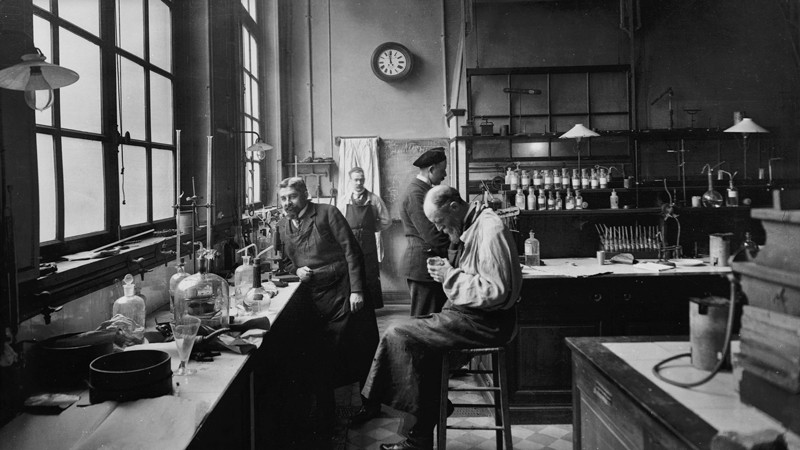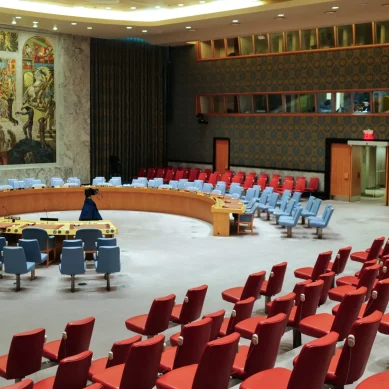
Professionals at research organisations are typically split into two categories: academic staff and support staff. As professionals working in research environments in the Netherlands and Australia, we have straddled the dividing lines between these conventional divisions.
We’ve also met many other professionals who have operated across this divide. And we all have worked as ‘conventional’ academics.
In recent years, we have seen ‘support’ jobs become more important at research organisations, including roles such as data stewards, research software engineers, scientific community managers and programme managers. We have seen how a diversity of roles and contributions drives progress and success in research and innovation.
We have come to see the sharp distinction between ‘academics’ and ‘support staff’ as a barrier to effective research because it discourages a culture of collaboration and appreciation of a diversity of roles and contributions.
As professionals, we make a significant contribution alongside conventional academics. Like many of our colleagues in ‘support’ roles, we are well connected with the academic community. We work in partnership with researchers, contributing unique expertise and skills.
We have academic credentials. We write papers, books, grant proposals, reports and manuals. We train students and academic staff; manage projects; organise and present at conferences and workshops; and lead developments in our areas of expertise. We are knowledge brokers, able to translate generic infrastructure, tools and policies into practical solutions that make research more efficient.
As a young researcher, M.C. was questioned about her decision to take a support role, even when that involved coordinating the development of a strategic plan for European astronomy. And M.T. was actively discouraged from starting a career in research data support and was instead urged to become a principal investigator in academia.
Some of their colleagues perceived these career choices as equivalent to demotions or a waste of their skills and potential, when in fact MC and MT were making important contributions to their field and to their institution.
We are not the only ones who feel that the division of the academic workforce is unhelpful. A survey by the UK Association of Research Managers and Administrators found that some young researchers are “made to feel that they have failed” if they switch career paths to a professional-services role. Some respondents called for a culture in which everyone is recognized for their complementary skills, not just the ‘star scientists’.
This aspect of the research culture is increasingly attracting attention. In 2019, for example, a position paper drawn up by five academic organisations in the Netherlands called for a rethink of the academic system of recognition and rewards.
Focusing on the need to diversify career paths for academic staff, the paper, called ‘Room for Everyone’s Talent’, pays attention to not only individual but also team performance. Colleagues in the United States also recognise that to tackle the big questions and address the complex social challenges of our day, research teams need diverse talents and skills.
Well-functioning teams rely on the sharing of responsibilities and credit. For research to advance and progress, diverse personnel must be able to contribute their talent and skills without being too restricted by conventional hierarchies.
In our experience, the structure of many academic institutions limits the way in which professional support staff can contribute to the research process. Here are some of the steps the sector can make to change that culture.
Even when they hold PhDs themselves and are considered world leaders in their field, professional support staff are not always allowed to supervise scientists and students, a role that can offer much-needed transferable skills. This has repeatedly been the experience of DK, who has been unable to directly supervise any higher-degree students owing to institutional requirements for academic affiliation, despite being approached multiple times.
Regulations around visas and remuneration are often different for academic and support staff, even when their qualifications and experience are equivalent. This creates barriers to building teams with diverse skills and to tackling challenges.
Moreover, some funders place lower maximum limits on salary scales for support roles than for academic roles, with the consequence that some projects cannot recruit the skills and talent they require. This can also lead to difficulties in retaining talented staff.
When providing support services, it is essential to innovate and do regular research to acquire evidence into what kind of services are useful and valued by the end users. However, there is a strong disincentive for support staff to apply for grants or to do research.
The majority of funding calls are open to academics only; support staff are not eligible to apply. Furthermore, basic aspects of research practice, such as obtaining ethical clearance for a project, might be challenging to support staff when they are not associated with an academic unit.
Research institutions need to foster collaborative environments that empower problem solving and build mutual trust and respect for skills and expertise, regardless of job titles and perceived ranking and status.
Research teams should not have to fight hard to appoint skilled support staff if their skills and experience would improve the quality or efficiency of the research process. Similarly, support units should not be prevented from doing research and hiring researchers where that would lead to evidence-based improvement of the services they provide.
Removal of the divide does not mean that research institutions should not have professionals who are responsible for doing research, and for supporting researchers. There are myriad job profiles corresponding to the very specific roles and tasks involved in running a research institution effectively.
What hinders the quality of the research process is not the existence of distinct job profiles and varying responsibilities, but the constraints imposed on the different types of professional. Removing these arbitrary divisions and instead fostering collaboration and exchange between academics and support staff is essential to making the research process successful and effective.
- A Nature report











